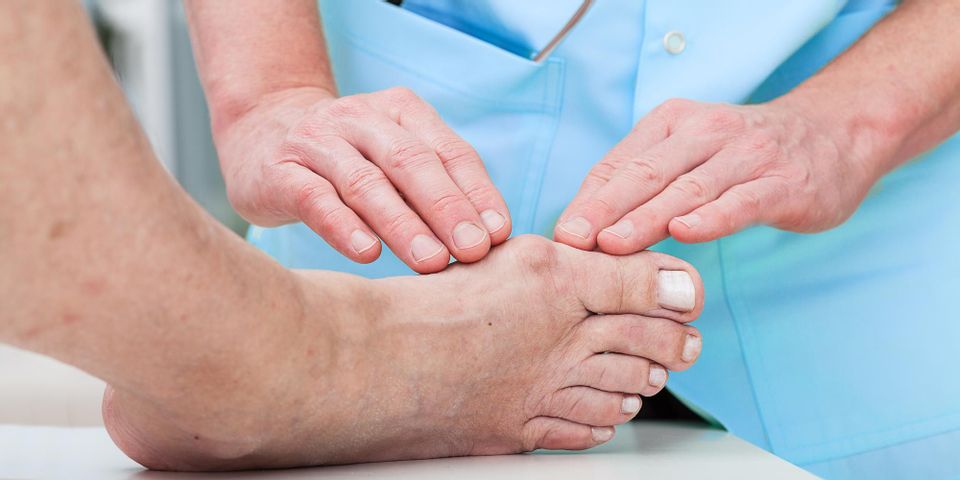
Bunions are a common foot problem that can cause quite a bit of discomfort if not treated properly. This bony outgrowth develops at the base of the big toe in people of all ages, causing pain that's particularly bad when standing. If you have this condition or think it may be the cause of your foot discomfort, learn more below.
What You Need to Know About Bunions
Why do bunions develop?
The type of shoes you wear is a significant factor in the development of bunions. Women who wear restrictive high heels often have them, since too-tight shoes force the bones in your big toe into an abnormal position. This foot condition may also be genetic, as you're more likely to develop bunions if someone else in your family has them. Being "flat-footed," or lacking a definable arch in your foot, is also associated with a higher risk of bunions.
What are the symptoms?
 People with bunions have big toes that point inward. You may also notice a large, hard bump on the toe joint or swelling in that area. Another symptom includes pain when pressure is put on the big toe, such as when walking or wearing shoes.
People with bunions have big toes that point inward. You may also notice a large, hard bump on the toe joint or swelling in that area. Another symptom includes pain when pressure is put on the big toe, such as when walking or wearing shoes.
What treatments are available?
Conservative treatments are usually the first line of attack. Custom orthotics can cushion your toe and make sure your foot is in the proper position. Taping your big toe to the second toe can also help relieve pressure. Finally, if you commonly wear tight shoes, look for a roomier pair.
When is surgery necessary?
If other treatments aren't working, and the bunion is impacting your daily life, surgery may be an option. Surgical procedures can remove the bony outgrowth and realign the joints for improved function. Most bunion surgeries are performed on an outpatient basis and typically have speedy recoveries.
If you experience any of the above issues, schedule a visit with a local podiatrist. Westside Podiatry Group in Rochester, Greece, and Gates, NY, can diagnose and treat bunions, along with many other bothersome foot conditions. They start by performing an in-office X-ray to find the root of the problem, and from there they’ll develop a treatment plan based on your specific needs. Visit their website today for more information on their services and treatment options, or call (585) 225-2290 to schedule an appointment.
About the Business
Have a question? Ask the experts!
Send your question

